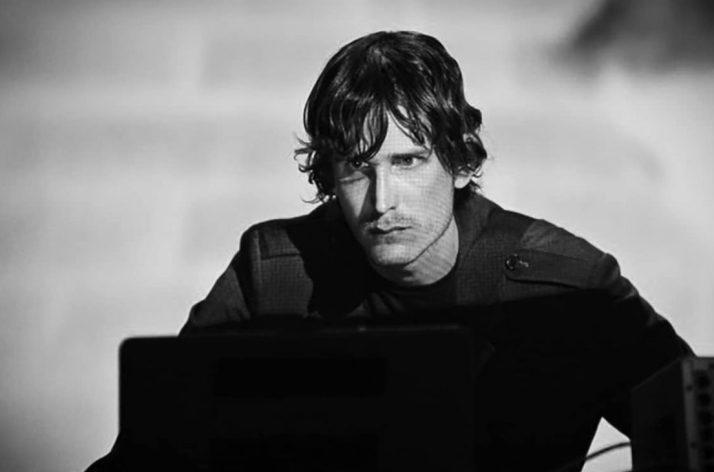Rafael Anton Irisarri (USA)
18/03/2019
Live set

Rafael Anton Irisarri is an American composer, multi-instrumentalist, producer and mastering engineer based in New York. He is predominantly associated with post-minimalist, drone and electronic music. His pointillist compositions lean towards ostinato motifs that tap into minimalist ideals, while his studio production style is characterized by dense layers of reverb and delay. Bowed guitar textures, deep pulsing bass tones, field recordings, submerged piano notes, melancholic strings and subtle electronic counterpoints all contribute and converge equally in his music to create an oceanic experience that contrasts the epic and subdued.
His compositions have been described by Jefferson Petrey as “a dual perspective close-up focus on the micro textures of rustling static-filled sonic surfaces with the wide-open distant tree lined horizons of sunset at dusk.” PopMatters depicted his music as “sensual, propulsive, and shrouded in mercurial darkness” while Drowned in Sound chronicled “his ear for a soul-crushing melody continues to shine through the album’s dense caverns of reverb”. Chris Brosman from online tastemaker Pitchfork referred to his production work as “a beautifully bleak cloud of sound”, while music journalist Patric Fallon praised his compositions as “dense, panoramic soundscapes”.
Irisarri is also known as the main member of electronic music/shoegaze act The Sight Below, and signed to American label Ghostly International.
Irisarri cited in an interview with German magazine De:Bug as having been inspired by classical composers like Mahler, Satie, Debussy, and Wagner, and contemporary musicians like Kevin Shields, Robin Guthrie, and Harold Budd.He also cites French existentialist philosopher Albert Camus and Uruguayan short story writer Horacio Quiroga as influences, and lists Le Petit Prince by Antoine de Saint Exupéry as one of his all-time favorite books. He considers filmmakers David Lynch, Jan Švankmajer, Werner Herzog, and Julio Medem as continuous sources of inspiration. In a radio interview with the ABC in Sydney, Irisarri goes into further detail, describing to Quiet Space radio host Paul Gough the process behind The North Bend as inspired by “this region (American Pacific Northwest), and not just with the fairly obvious ‘rainy, gloomy skies’ clichés, but more in the folk, cultural traditions and pop-culture references (think of David Lynch and his television-defining narrative Twin Peaks). They sort of helped me create an audio postcard of this beautiful area of the United States.”
